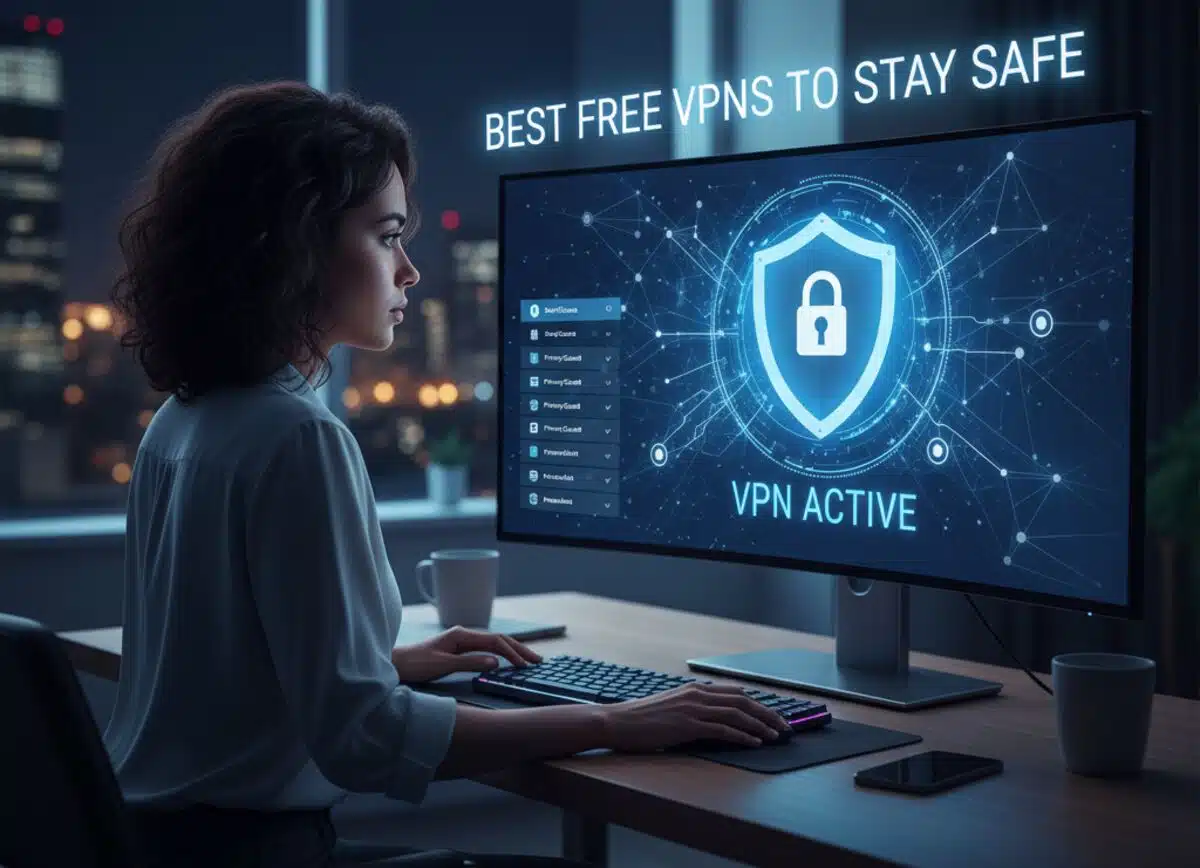You probably know a VPN stands for Virtual Private Network. But what does that actually mean for you? In plain terms: a VPN encrypts your internet traffic and routes it through a server in another place, so your data looks different to outsiders. That’s the short version. Now let’s walk through what that buys you — and what it doesn’t.
Keep your data from prying eyes
Public Wi‑Fi is convenient and unreliable in equal measure. You hop on a café network to check mail or log into bank stuff and — unless you add protection — you’re broadcasting data in ways that skilled snoops can read. However, most sensitive traffic (like banking and email) is already encrypted by HTTPS, which protects the content of your activity; a VPN is still essential because it hides which websites you are connecting to and offers protection against other network-level threats. A VPN encrypts the connection between your device and the internet, which makes casual eavesdropping far less likely. It isn’t magic; it raises the bar, and that often makes a big difference.
A VPN also hides your IP address from the websites you visit. That means sites and some ad trackers can’t pin your physical location directly. Helpful if you value privacy, or simply don’t want your browsing stitched into a neat profile.
Work while you travel — more securely
If you work remotely, a VPN can be a lifesaver. It lets you reach corporate resources as if you were on the company network, but without hauling a laptop into a closed office. Companies often use VPNs to enforce access controls and protect internal tools. For freelancers and remote staff, that also makes client data less exposed when you’re on different networks.
Bypass annoying blocks and throttling
Ever hit a content wall because your country or your provider blocks a site? A VPN can let you reach content available in other regions. Same with ISP throttling: some providers slow down certain kinds of traffic, like streaming. Routing traffic through a VPN can reduce that kind of selective slowdown. It’s not guaranteed, and it depends on the provider and local rules, but it’s often useful.
But don’t expect anonymity
A VPN is not the same as being anonymous. Your VPN provider can still see a lot about what you do, and some free services log and sell data. If you want real anonymity, you need more layers — but for everyday privacy and security, a reputable VPN is usually the right tool. Think of it like locking your front door; it doesn’t make you invisible, but it keeps out many of the common threats.
Choose a trustworthy provider
Not all VPNs are created equal. Free services often come with hidden costs: data limitations, poorer encryption, or selling your browsing habits. Paid providers typically invest in stronger encryption, better server networks, and clearer privacy policies. Look for providers with a transparent logging policy, independent security audits, and solid customer reviews. Small details matter: where the company is incorporated, how long they’ve been around, and whether they’ve been audited.
Limitations worth remembering
A VPN won’t stop phishing emails, malware on your device, or bad passwords. It won’t protect what you voluntarily give to websites or apps. It can’t evade legal orders to disclose data if the provider is compelled to comply. And in some countries, VPN use is restricted or monitored, so check local rules before you rely on one.
Despite the limits, a VPN is a practical layer in your personal security toolkit. It’s simple to set up, easy to toggle on when you need it, and it makes several real-world risks smaller.
If you’re curious, start by asking yourself what you need most: privacy, access to work resources, or bypassing unfair throttling. Then compare providers on transparency and technical quality rather than flashy ads. Try a short trial, test speeds, and read the privacy policy.
Tell us: have you used a VPN before, and what did you notice? Drop a comment below with your experience or questions, and follow us on Facebook, X (Twitter), or LinkedIn to keep the conversation going.
For marketers, you just must check these 4 marketing tactics that drive real growth.
Sources:
- https://www.pcmag.com/picks/the-best-free-vpns
- https://www.techradar.com/vpn/best-free-vpn
- https://www.security.org/vpn/best/free/



How Internal Linking Supercharges SEO: A Practical Guide for WordPress Websites
Unlocking the Value of Content Marketing for Enterprises